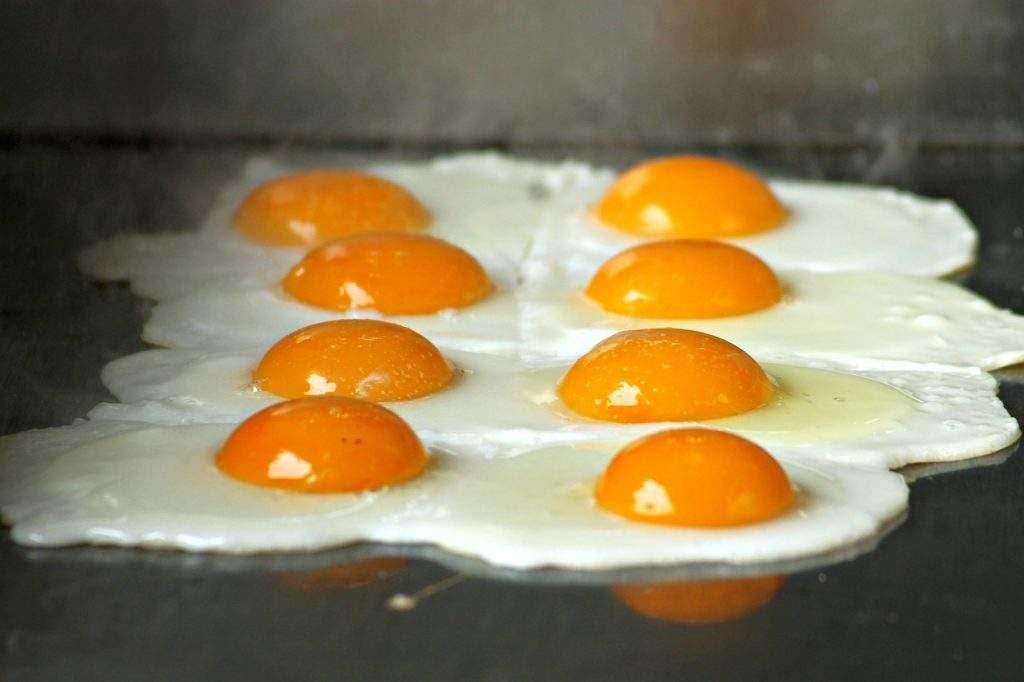
This article aims to inform people about the advantages of the egg and its essentials, which are human body needs, and how useful it is not just for the human body but also in several ways, as well as the differences between the egg white and egg brown.
Eggs have been consumed for thousands of years. Eggs are high in vitamins and minerals, which are important components of a balanced diet.
One egg contains 6 grams of the material, which includes all nine “essential” amino acids, which are the protein’s building blocks. The egg white contains about half of the protein, as well as a small amount of fat and cholesterol.
Is there a difference in nutrition between white and brown eggs?
There is no difference in nutrition but the price on store shelves. Red-feathered chickens with red ear lobes that lay brown eggs are more costly as they are larger in bodies and need more feed than white feathers and white ear lobes that lay white eggs since the hens that lay them are different.
They are nutrient-dense vitamins, minerals, amino acids — per calorie than most other foods. You will get:
- High-quality protein
- Selenium
- Phosphorus
- Choline
- Vitamin B12
- Multiple antioxidants, which help keep your cells healthy
BENEFITS
Eggs have a variety of health benefits.
- Muscle strength: Egg protein contributes to the maintenance and repair of body tissues, including muscle.
- Eggs are high in vitamins and minerals that are needed for the brain and nervous system to function properly.
- Eggs provide all of the nutrients that the body needs to generate energy.
- Good immune system: Vitamin A, vitamin B-12, and selenium, all of which can be found in eggs, are important for a healthy immune system.
- Lower risk of heart disease: Choline in eggs aids in the breakdown of homocysteine, an amino acid that can lead to heart disease.
- A healthy pregnancy: Folic acid, found in eggs, can aid in the prevention of congenital disorders like spinal bifida.
- Eggs’ lutein and zeaxanthin tend to reduce macular degeneration, which is the main cause of age-related blindness. Other vitamins found in eggs aid in eye health.
- Eggs’ protein can make people stay fuller for longer, which can help with weight loss and maintenance. This will reduce a person’s need to eat while still lowering their average calorie consumption.
- Eggs contain vitamins and minerals that aid in the promotion of healthy skin and the prevention of body tissue breakdown.
Boiled egg benefits
According to the United States Department of Agriculture (USDA), one medium Trusted Source boiled or poached egg weighing 44 g can provide the following nutrients:
- Energy: 62.5 calories
- Protein 5.5 grams (g)
- Total fat: 4.2 g, of which 1.4 g are saturated
- Sodium: 189 milligrams (mg)
- Calcium: 24.6 mg
- Iron: 0.8 mg
- Magnesium 5.3 mg
- Phosphorus: 86.7 mg
- Potassium: 60.3 mg
- Zinc: 0.6 mg
- Cholesterol: 162 mg
- Selenium: 13.4 micrograms (mcg)
- Lutein and zeaxanthin: 220 mcg
- Folate: 15.4 mcg
Eggs are also a source of vitamins A, B, E, and K.
Egg white and yolk are both rich sources of protein. Around 12.6% of the edible part of an egg is protein.
Adults aged 19 and up can eat 46–56 grams of protein a day, based on their age and gender, according to the 2015–2020 Dietary Guidelines for Americans. This can account for 10–35% of their total caloric intake.
According to a study published in 2018, eggs contain high-quality protein and are unlikely to cause heart disease.
ALTERNATE USE OF EGGS
Leftover egg whites…
1. A mask for your face
A skin-firming face mask can be made by whisking egg whites with a little water. Egg whites are believed to have anti-aging effects since they minimize puffiness and make pores appear smaller.
2. Adhesive
Egg whites become increasingly sticky as they dry. They work well as glue for paper or light cardboard, despite their lack of strength.
3. Leather conditioner
Egg whites are also good at cleaning certain surfaces, especially leather, due to their sticky nature. Rub gently into shoes, pockets, or even sofas, then wipe clean with a rag. Egg whites may also be used and coat leather to secure it.
Leftover egg yolks…
1. Biscuit embellishment
By combining egg yolks, water, and brightly colored foods, you can make edible paint for decorating biscuits before baking.
2. Conditioner for hair
To make a rich conditioner, combine an egg yolk with water or olive oil. After shampooing, apply the mixture to your hair and keep it on for about 10 minutes. Rinse with cool or mild but not hot water.
Eggshells…
1. Fertilizer
Crushed eggshells will significantly increase the calcium content of your compost and make your soil richer – just smash and add to the mix!
2. Pest repellent
you can deter pests such as snails and slugs that are repelled by the rough surface by crumbling eggshells and sprinkling them on your plants or soil.
3. Cleaner for pans
To make a natural abrasive cleaner for pots and pans, mix crushed shells with soapy water. The rough edges help in the removal of difficult stains and perhaps scrambled egg residues!
4. Fabrics whitener
Grandmother’s tip: To whiten your whites, put your eggshells in a tiny cotton bag and toss them in with your laundry in the washing machine and wait for the magic to happen.
Hey, wait! Wait! Wait…Where are you going?
Oh, no don’t throw the water out after boiling or poaching your eggs – let it cool and give your plants some nutrients!
Don’t pull all your eggs in one basket, try different things, not just one.
So, you know now how helpful and beneficial egg is, so, start using it in multiple ways and take good care of yourself.